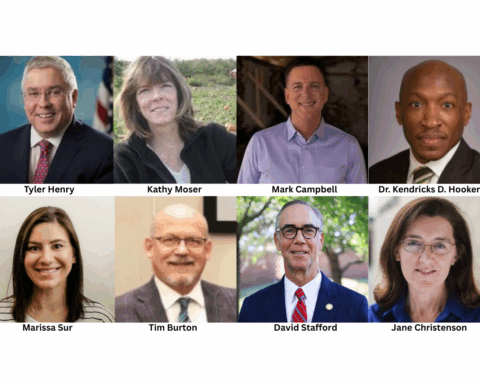The Washington State Department of Commerce has announced an $85 million grant initiative designed to deploy nearly 5,000 new electric vehicle (EV) charging stations across the state.
The grants are result of applications to the Washington State Electric Vehicle Charging Program, which provides $64 million of the project funding, with the remainder funded by the Climate Commitment Act. The program specifically targets nonprofits, electric utilities, tribes and public agencies, with a strategic focus on locations that lack sufficient charging infrastructure and bear the brunt of environmental pollutants.
The awards will go to 565 locations, including:
- 213 multifamily properties.
- 211 fleets and workplaces, primarily among local government bodies and educational districts.
- 141 public spaces such as recreation areas, libraries, and grocery stores slated to receive charging stations.
The grant allocation was determined by a competitive scoring system, prioritizing areas with high pollution and insufficient charging options. An interactive map offered by the Commerce department shows the awarded project locations and details about the anticipated charging capacities at the individual facilities.
The awarded projects include 4,710 Level 2 (L2) chargers and 271 direct current fast chargers (DCFC). L2 charging offers the capability to add 10-20 miles of range per hour of charging, making them ideal for day-to-day use and overnight energy replenishment. Alternatively, DCFC facilities can charge a 300-mile range battery up to 80% in 20 minutes, serving as an asset for longer-distance corridors and quick stop locations.
Parallel to Washington’s efforts, the federal government continues to invest heavily into a national EV charging infrastructure. Federal Highway Administration has earmarked $885 million for FY 2024, set to be distributed across all 50 states, Washington D.C., and Puerto Rico under the National Electric Vehicle Infrastructure (NEVI) program. Each state must present a detailed expenditure plan annually to receive funds, with $100 million reserved for those states and projects struggling to meet the 20% match requirement. NEVI is part of the Bipartisan Infrastructure Law, which has dedicated $5 billion from 2022 to 2026 for the program. According to a NEVI update in October, 26 states are actively soliciting proposals, awarding contracts and/or breaking ground on new EV charging stations.
The largest recipients of NEVI funds for FY 2024 are California ($81.7 million), Florida ($42.2 million), New York ($37.4 million), and Pennsylvania ($36.5 million). A list for every States funding amounts and NEVI plans are available online.
In addition, the federal government has pledged funds of $623 million in grants to construct an extensive EV charging network nationwide through the $2.5 billion Charging and Fueling Infrastructure (CFI) Discretionary Grant Program, which underwrites 47 EV charging and alternative-fueling infrastructure projects in 22 states and Puerto Rico, including approximately 7,500 EV charging ports.
This collective effort represents a significant advance in the United States’ commitment to sustainable transportation and EV vehicle infrastructure. According to the Made-In-America agenda, the federal government is aiming for at least 500,000 publicly accessible chargers and to have EVs make up 50% of new car sales by 2030.
All news and information on this site is provided by the team at Strategic Partnerships, Inc. Check out this short 1-minute video that provides a quick overview of how we work with clients.












